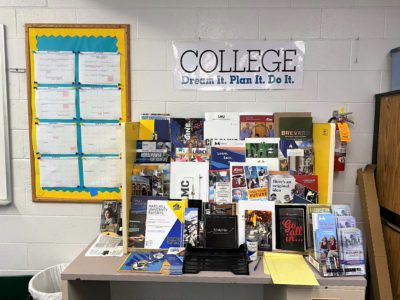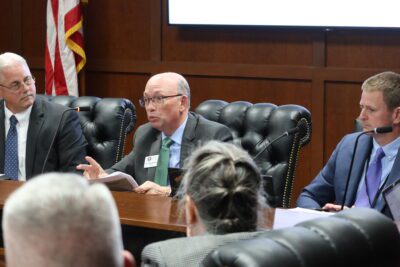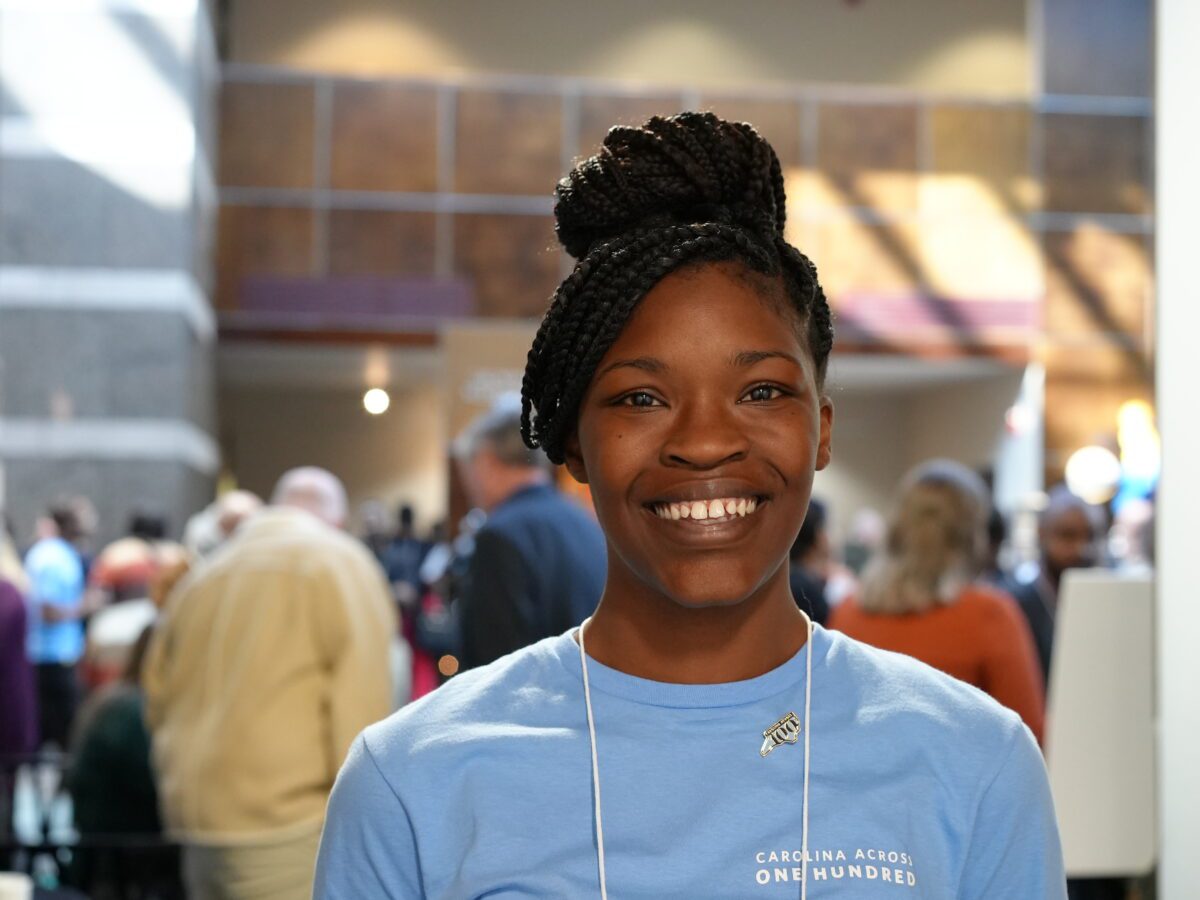
|
|
When Donisha Armstrong was a teenager, she dropped out of high school.
“I was totally headed down the wrong path,” she said.
Like many youth from lower income families, Armstrong felt the need to choose between school and work. She needed the money, so she chose work.
Now, with the support of “Our State, Our Work”, an initiative of Carolina Across 100, she is back in school pursuing her GED at Wayne Community College.
The catalyst for Armstrong’s re-enrollment was her infant daughter. Upon finding out she was pregnant, she knew she wanted something more for herself and her growing family.
“I can’t tell her to get something I don’t have,” said Armstrong.
Carolina Across 100 is a pan-university effort to partner with communities in each of North Carolina’s 100 counties. “Our State, Our Work” is a two-year initiative to connect young adults to living wage employment opportunities. These young adults are part of a group described as opportunity youth, which are people aged 16-24 that are both not enrolled in school and not working. There are 13 teams across the state representing 37 counties. Their goal is to reach 6,400 opportunity youth.
Wayne County Pathfinders, the program that helped Armstrong re-engage with school, is team number 11. They, along with other “Our State, Our Work” teams, presented their progress and findings at an Opportunity Youth Summit on Nov. 29.
Anita Brown-Graham and her team are leading the “Our State, Our Work” initiative. Brown-Graham is the founder and director of the ncIMPACT Initiative at the UNC School of Government, where she is a faculty member.
“When we talk about disconnected youth, we’re making it seem as though they’re disconnected completely from the community, and that’s not true. The reality is, we have two systems that have failed them, the education system and the employment system, and we’re going to find opportunities to reconnect them,” said Brown-Graham.
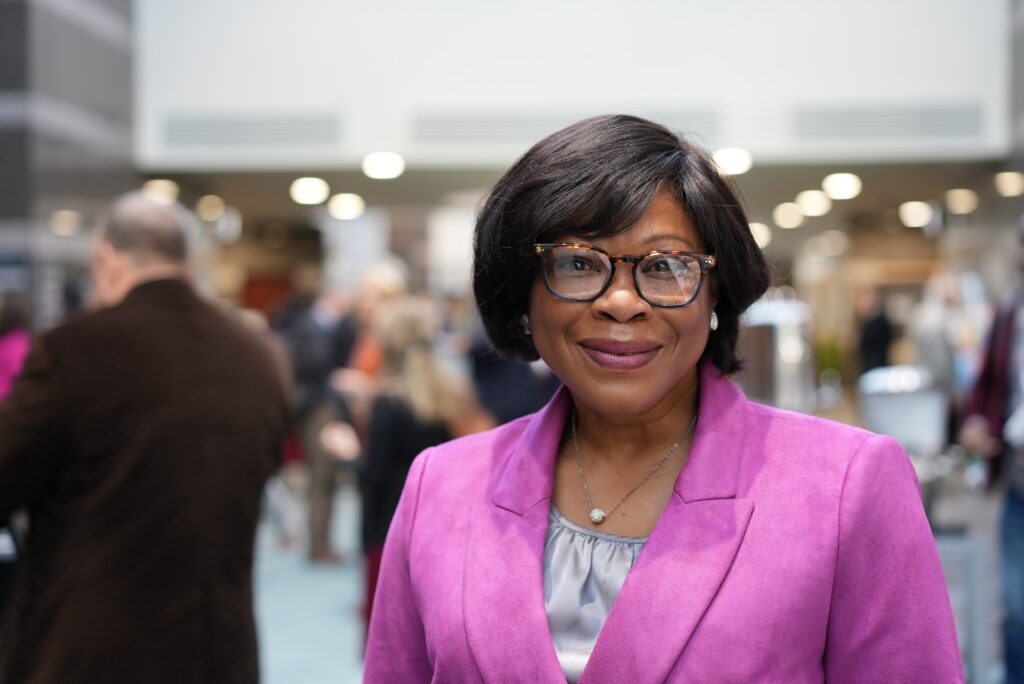
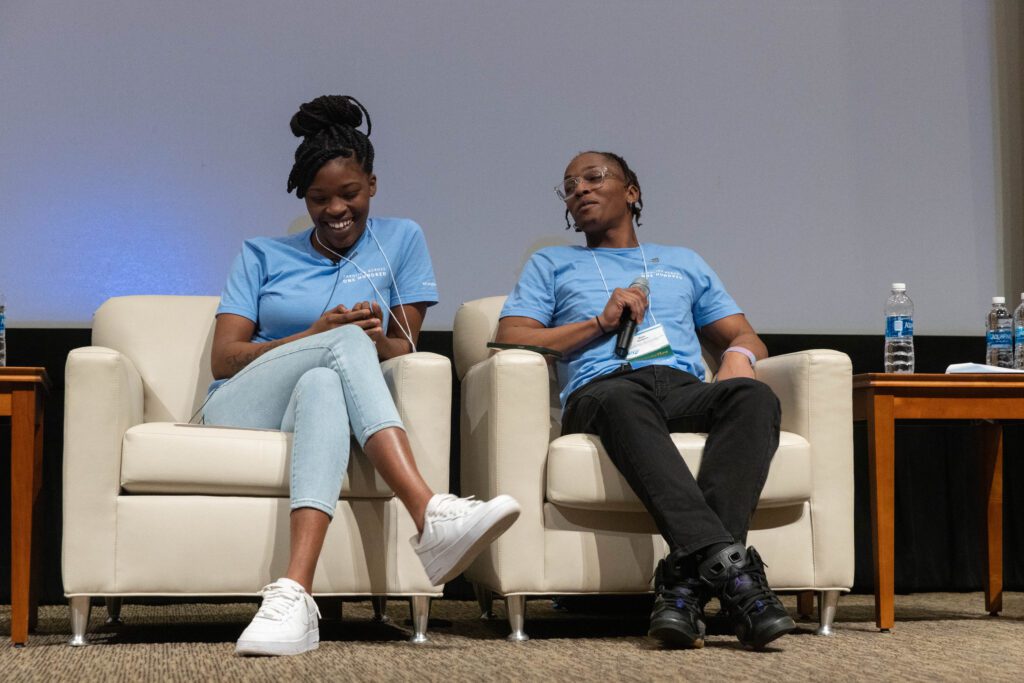
In 2022, there was an estimated 141,823 opportunity youth across the state, making up 11% of the working aged young adult population ages 16 to 24. Looking at the demographic breakdown, 11% of females and 10% of males ages 16 to 24 are classified as opportunity youth. The rate of opportunity youth is highest in the American Indian, Black, and multiracial demographic groups, at 18%, 15%, and 13%, respectively. Nathan Dollar, the Director of Carolina Demography, presented the data at the summit.

Laura Ulrich, Senior Regional Economist at Federal Reserve Bank of Richmond, followed Dollar with updates about the state of the economy and its impact on opportunity youth.
“It is going to become more important to engage opportunity youth and under-employed young adults because of the demographic shifts that we’re seeing in the U.S.,” said Ulrich.
Geographic distribution of jobs is a critical data point for this work as well. Most of North Carolina’s counties are rural – 78 of 100, according to the NC Rural Center. When looking at the spread of opportunity youth across the state, the highest rates are found in 5 rural counties in eastern North Carolina – Hertford, Northampton, Halifax, Bladen, and Columbus.
“There are more people working in the state of North Carolina than there ever have been before. There are more jobs in the state of North Carolina than there have ever been before, but these opportunities are not distributed equally around the state,” said Ulrich.

N.C. Community College System president Dr. Jeff Cox was on hand to help kick off the event.
“We have to do a better job of engaging that population and helping them find a pathway to prosperity through a community college,” said Cox. “We know that they’re going to need some sort of postsecondary degree or credential to be able to really improve their social and economic mobility. We have to be the bridge for them to a better future.”
Cox went on to share that the system and state must examine why many students do not see community college or four-year universities as a viable opportunity right now. He said in his experience, at least students likely believe they either cannot afford college or do not understand how affordable community colleges can be for students of every income bracket.
One significant opportunity for the state moving forward is to better explain the FAFSA with the introduction of the simplified form — and how the FAFSA, Pell Grants, and scholarships work together. Cox said he believes the messaging for prospective students must also focus on how flexible and fast short-term credentialing programs can be.

What is another key, according to Cox? Focusing on partnerships between the community college and university systems.
“I think we really have to dig into looking at the college transfer,” commented Cox. “A lot of our students who have engaged with us stopped out in that college transfer pathway. And they stopped out when they really began thinking about what was that transition going to look like to go on to the university and realizing they didn’t really have a financial plan to get there.”
Cox shared that one partnership opportunity between the community college system, UNC system, and North Carolina’s private colleges and universities would be helping students understand the financial aid opportunities for each of them — and the importance of building out a financial plan that works for the student and their family.
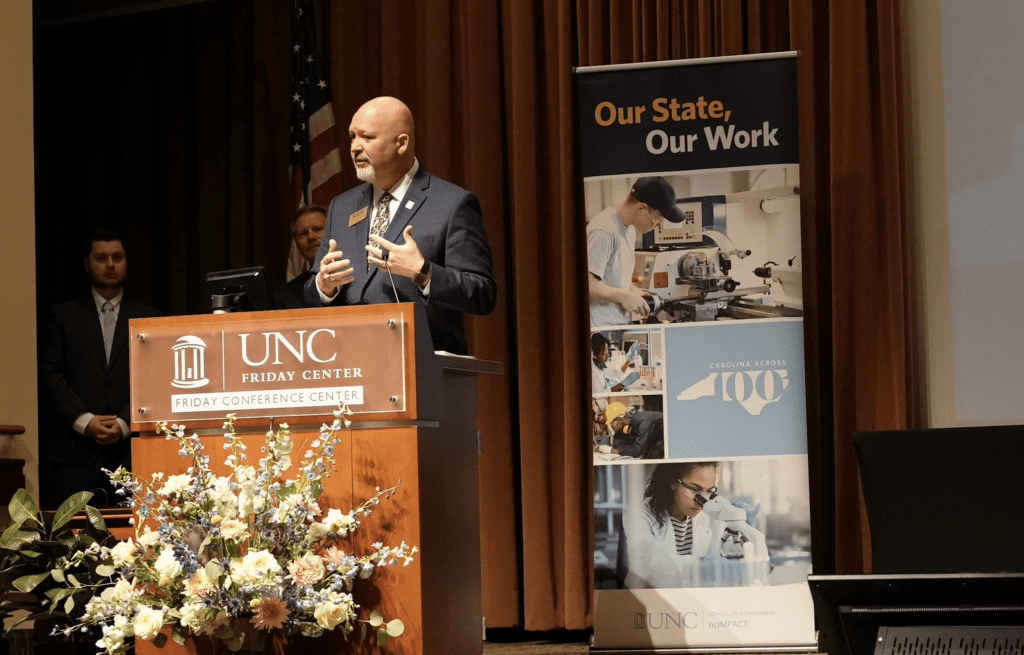
Armstrong is from rural Wayne County, as were many of the other opportunity youth attending the summit. These counties rely heavily on their education and public infrastructure in their efforts to support and re-engage opportunity youth.
Armstrong learned about the program at the Wayne County Public Library, where she is doing her internship experience. The library is partnering with the Wayne County Chamber of Commerce, Wayne County Public Schools, Communities Supporting Schools of Wayne County, and Wayne Community College as part of the greater Wayne County Pathfinder team.
“There is a misconception that a lot of older people have that young people are unmotivated and unproductive and just don’t want to do anything with our lives. But I think the problem is that the resources are out here, but nobody knows the resources,” she said.
Armstrong is working hard toward her GED and encouraging others to enroll to earn theirs, too. She wants people to know it isn’t as easy as everyone thinks. But for her, that challenge is an indication that she’s on the right track.
“Sometimes you have to be in an uncomfortable position to want that change for yourself. As long as you’re comfortable, you’ll never progress,” she said.
The resources provided through “Our State, Our Work,” are supporting Armstrong and thousands of other opportunity youth across the state. While she’s proud of herself for her work towards earning her GED, Armstrong is most proud of the fact that she is having a positive impact on others.
“I feel like my story is changing a lot of people,” she said.
You can learn more about Carolina Across 100 and “Our State, Our Work,” here.
Editor’s note: This article was updated to correct the spelling of Donisha Armstrong’s first name.




